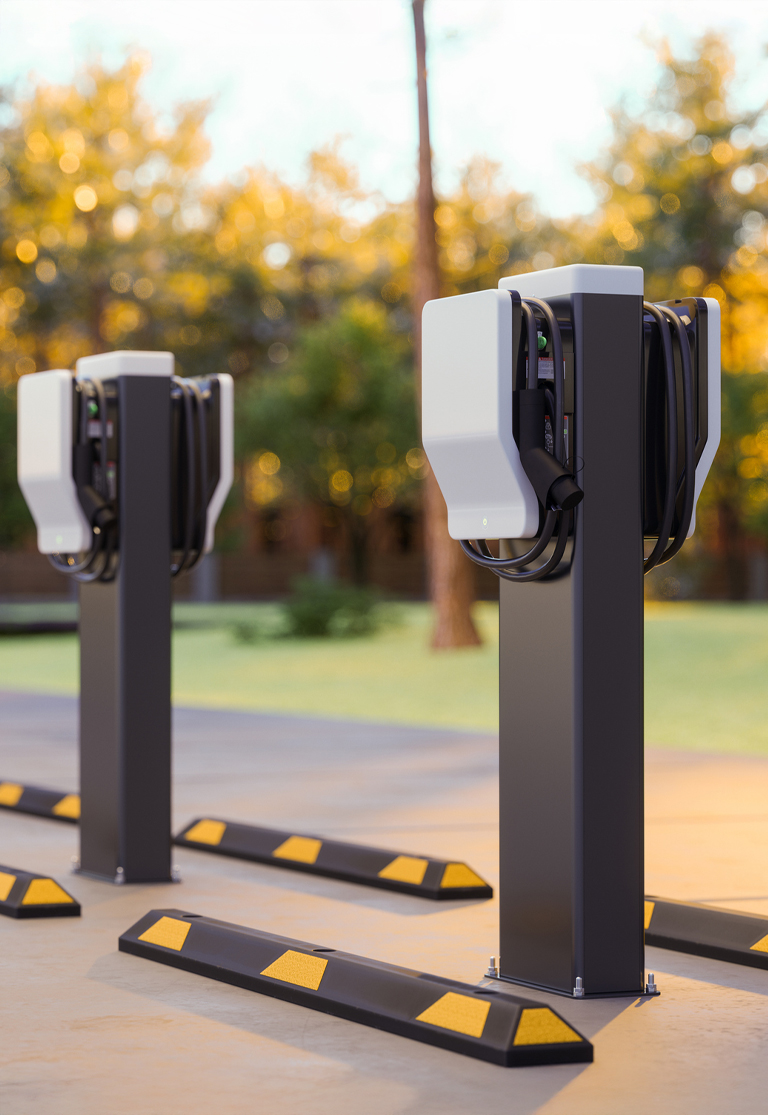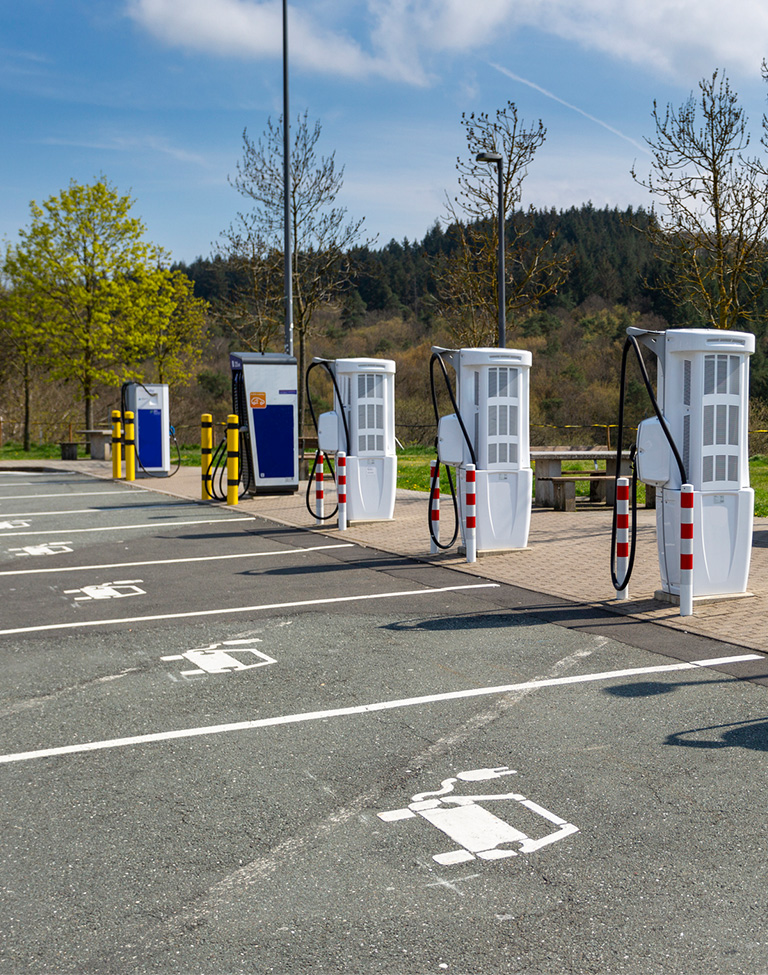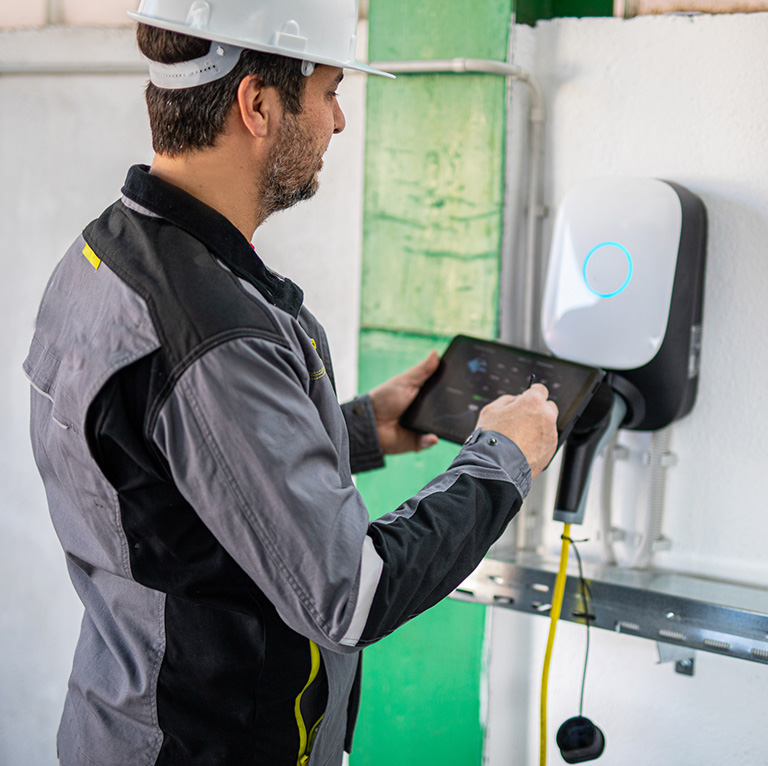
EV Charging Infrastructure & Installation for Properties in Birmingham, AL
EV charging demand continues to grow across commercial, industrial, and multi-tenant properties. We install EV charging stations that support tenant access, customer use, and fleet operations. Each system is designed around parking layout, panel capacity, and charging level to ensure proper coverage and compliance.
Our team installs Level 2 and DC fast-charging systems for offices, warehouses, retail centers, HOAs, and public infrastructure sites. Installations include conduit runs, load calculations, panel tie-in, and network connectivity. We also upgrade older setups to meet current code or add charging capacity across large lots or garages.
Before installation, we review site access, power availability, and usage patterns to avoid rework or downtime. All installations are coordinated with utility providers, site managers, and general contractors to meet project timelines and safety requirements.
1Point Electric provides full-service EV charging installation and infrastructure support across Birmingham and surrounding areas. Contact us to schedule a walkthrough, request a quote, or review your property’s charging capacity.

EV Charging Levels & Power Requirements
EV chargers fall into two primary categories for commercial properties. Each level has different voltage, amperage, and infrastructure requirements.
All charger types are selected based on site layout, available power, and projected vehicle volume.
EV Charging Services FAQs
We install EV charging systems across commercial properties in Birmingham and nearby areas. Each project includes planning, installation, and system testing to ensure every charger operates correctly and meets code.
The FAQs below explain how EV charging systems are installed, maintained, and supported across different property types.
Most EV charger installations happen at properties with consistent vehicle traffic or longer dwell times. Offices, retail centers, parking structures, and multi-tenant properties benefit from Level 2 chargers. Distribution yards, fleet depots, and highway-accessible sites often require DC fast charging systems to support higher turnover or fast-charging needs.
Installing EV chargers in these locations can support tenant value, reduce operational delays, and prepare your site for new building code requirements. Our team reviews charger placement, layout access, and load capacity before installation begins.
EV chargers may stop working due to site-related, system-related, or electrical issues. Common causes include:
- Wiring Faults: Internal wiring damage, loose terminals, or incorrect breaker sizing.
- Communication Errors: Network loss or firmware errors that affect smart charging features.
- Load Imbalance: Overloaded circuits or insufficient panel capacity for multiple chargers.
- Hardware Damage: Broken plug heads, corroded terminals, or vandalism.
We inspect chargers onsite to isolate the issue and complete repairs based on manufacturer specs and code requirements.
Yes. While EV chargers require less upkeep than many systems, regular inspections are recommended. Site conditions, charger usage, and mounting methods affect how often service is needed. For high-traffic sites, quarterly inspections and annual testing are typically enough to confirm performance and avoid downtime.
Our team provides site-specific service plans that cover visual checks, hardware testing, and system recalibration when needed.
Every site comes with unique infrastructure and layout variables. The most common installation challenges include:
- Conduit Access: Long runs, slab penetrations, or obstructions near the mounting area.
- Load Availability: Insufficient panel capacity or aging electrical infrastructure.
- Mounting & Placement: Limited wall space or parking layouts that require pedestal setups.
- Utility Coordination: Required in some cases for metering upgrades or transformer changes.
We handle planning, permits, and layout reviews in advance to reduce rework and avoid code violations.
Most Level 2 charger installs take one-to-two days once access is available. Larger projects with trenching, conduit routing, or utility upgrades may take one-to-two weeks. Lead time depends on charger type, delivery schedule, and site readiness.
We confirm scheduling during the planning phase so that charger installation doesn’t interfere with regular operations or tenant access.

Schedule Your Commercial EV Charger Installation
We provide commercial EV charger installation services across Birmingham and the surrounding areas. Our team works closely with general contractors, facility managers, and property owners to install or upgrade EV charging infrastructure with minimal disruption.
Ready to take the next step? Contact us today to schedule a site visit, request a quote, or discuss your project needs.

